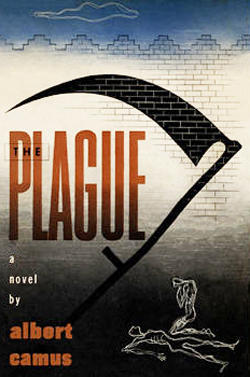Knowing this therefore made it easier to recognise his biases, baring in mind that both The Stranger and The Plague were published in the 1940's when Algeria was still under French rule. A majority of his characters are not Arab, they are either French or Spanish or Jewish and all of these characters are named. When he does include Arab characters they are usually referred to as 'The Arab'. This is particularly noticeable in The Stranger. I initially thought this to be very strange because it was almost as if these Arab characters were being marginalised. But I soon realised that Camus did not necessarily intend to do this and I began reading the novels in the context in which they were written in. And so even though I was a little disappointed with not being able to learn more about the history of Algeria that I was familiar with, I learned a lot about pied noir Algeria. Essentially, Camus provided me with a different perspective on the story I thought I knew.
After sounding like a disappointed fuss pot, I have to admit that I did really enjoy both books. Camus does a great job of describing the setting and developing his characters, I mean he didn't win the Nobel prize for literature for nothing you know. He uses concepts such as absurdism and existentialism to inject his narratives with a unique flavour, and I found his story telling persuasive and compelling.

No comments:
Post a Comment